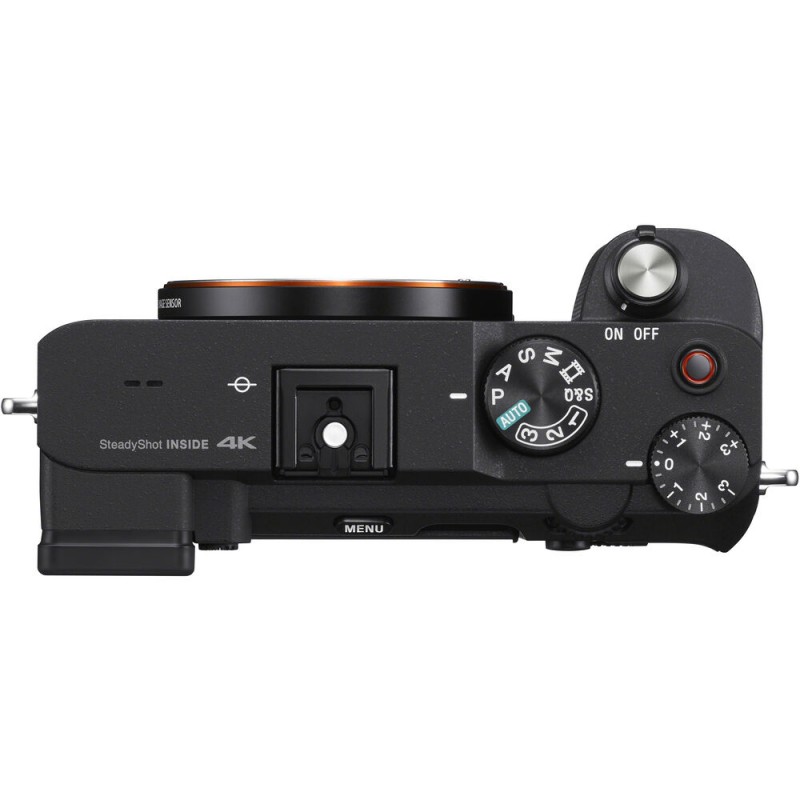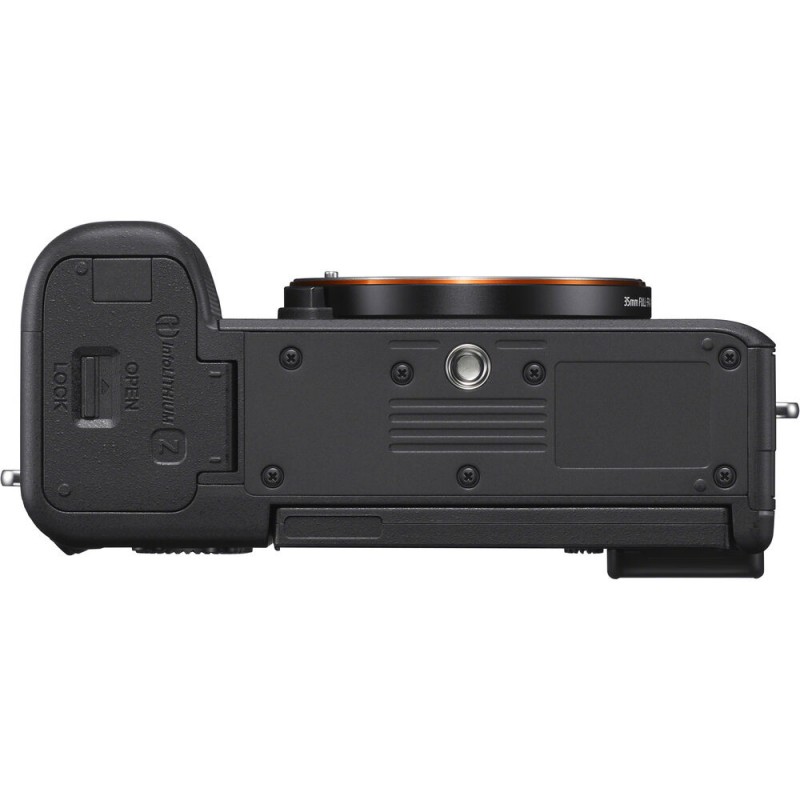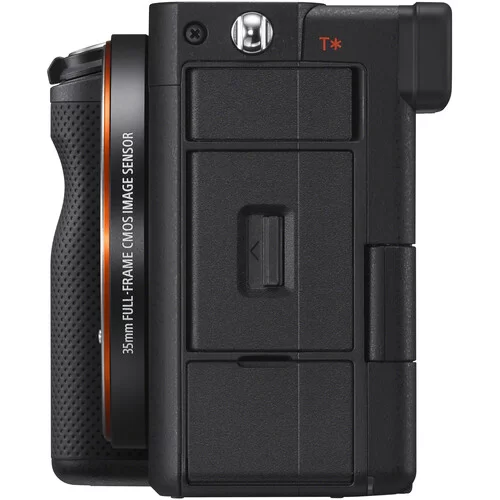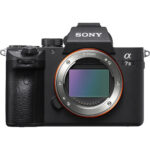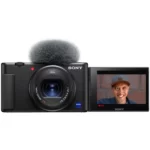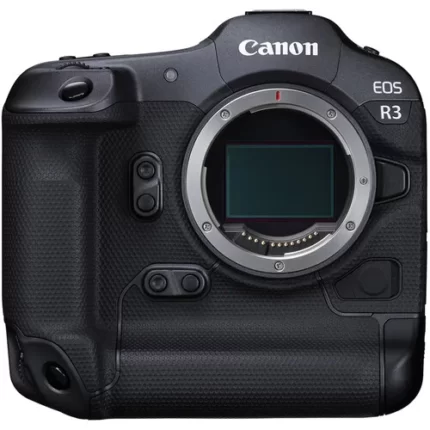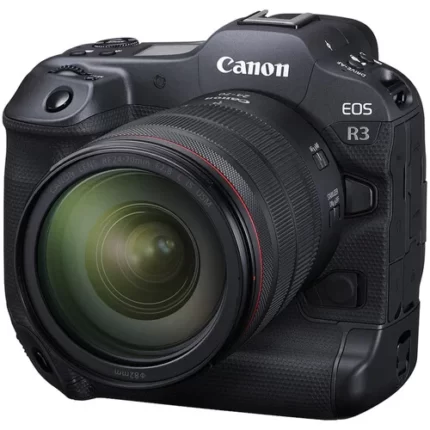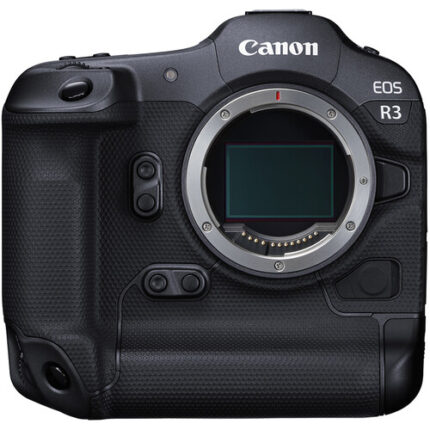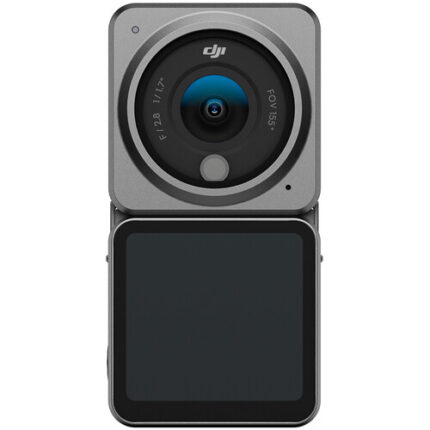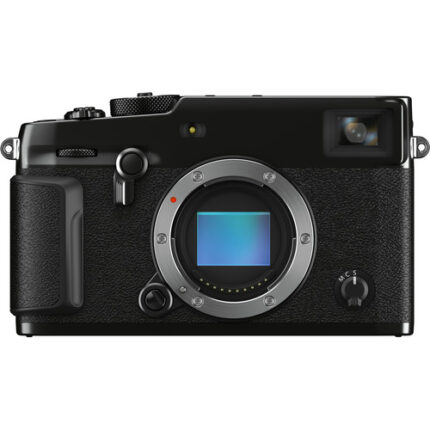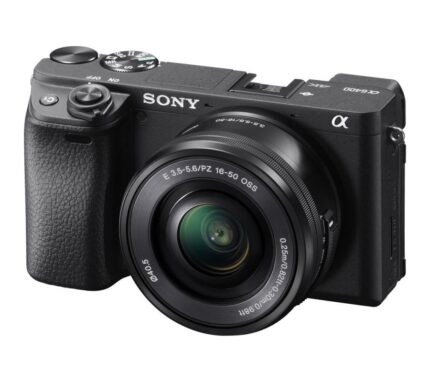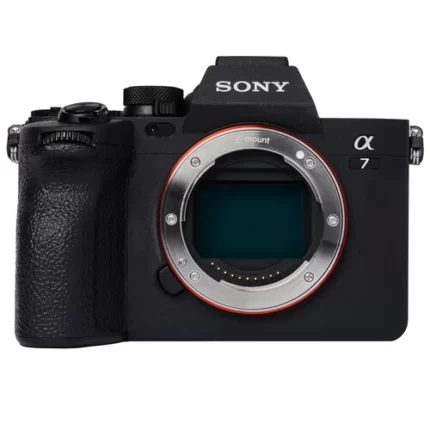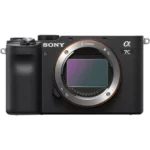
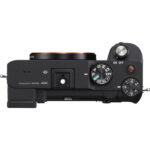
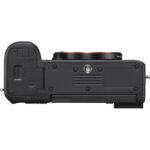

Sony Alpha a7C Mirrorless Digital Camera (Body Only)
₨ 434,900 Original price was: ₨ 434,900.₨ 424,900Current price is: ₨ 424,900.
24.2MP Full-Frame Exmor R BSI Sensor
BIONZ X Image Processor
UHD 4K30p Video with HLG & S-Log3 Gammas
693-Point Hybrid AF System
2.36m-Dot OLED Electronic Viewfinder
3.0″ 921.6k-Dot Vari-Angle Touchscreen
5-Axis In-Body Image Stabilization
Shooting Up to 10 fps, ISO 50-204800
Bluetooth and Wi-Fi Connectivity
FE 28-60mm f/4-5.6 Lens
Sony Alpha a7C Mirrorless Digital Camera (Body Only)
- 24.2MP Full-Frame Exmor R BSI Sensor
- BIONZ X Image Processor
- UHD 4K30p Video with HLG & S-Log3 Gammas
- 693-Point Hybrid AF System
Compact and capable, the black Sony Alpha a7C mixes the quality and advantages of a full-frame sensor with an especially portable and sleek body design. Featuring a 24.2MP Exmor R BSI CMOS sensor, the a7C offers hybrid abilities to suit both photo and video recording needs along with a form factor for everyday, all-day carry.
The full-frame sensor and BIONZ X image processor offer up to a 15 stop dynamic range along with UHD 4K video recording, extended sensitivity from ISO 50-204800, and a top continuous shooting rate of 10 fps for working with moving subjects. The sensor also houses a Fast Hybrid AF system, which uses 693 phase-detection points and 425 contrast detection areas for quick, intelligent, and precise autofocus performance with support for Real-time Eye AF and Tracking AF technologies. Also benefiting both photo and video needs is 5-axis in-body image stabilization, which compensates for up to five stops of camera shake for sharper handheld shooting.
Compared to other a7-series camera bodies, the a7C has a distinctly sleeker profile that mimics the styling of a rangefinder, with an offset viewfinder and a streamlined top plate. The re-positioned electronic viewfinder is a 0.39″-type OLED with 2.36m-dot resolution and is complemented by a 3.0″ side-opening vari-angle touchscreen LCD. Built-in Wi-Fi and Bluetooth also enable wireless connectivity for remote camera control and sharing files to a connected mobile device.
24.2MP Exmor R BSI CMOS Sensor and BIONZ X Image Processor
Featuring a back-illuminated design, the full-frame 24.2-megapixel Exmor R CMOS sensor works with the BIONZ X image processor to offer high-resolution stills and video while minimizing noise and improving speed. This sensor structure works with a gapless on-chip lens design and an anti-reflection coating to improve light collection and enhance detail. Also, the copper wiring layer dramatically improves data transmission speed for creating 14-bit, high-resolution stills with a native sensitivity range from ISO 100-51200, which can be further expanded to ISO 50-204800. Also, it enables internal UHD 4K video recording with a wide dynamic range using the full width of the full-frame sensor. The BIONZ X processor also works in conjunction with a high-speed front-end LSI to realize faster processing times along with the ability to capture an impressive 15-stop dynamic range at low sensitivity values.
The sensor and processor combination also avails fast continuous shooting at up to 10 fps at full resolution, for approximately consecutive JPEGs or 115 consecutive raw files, and with full-time AF/AE when working with either a mechanical shutter or an electronic shutter.
UHD 4K Video Recording in XAVC S Format
Internal recording of UHD 4K videos is possible in multiple frame rates up to 30 fps and using 2.4x oversampling renders greater detail and full pixel readout is possible for higher quality imagery with reduced moiré and aliasing. Full HD 1080p recording is also supported in frame rates up to 120 fps, and both resolutions utilize the 100 Mb/s XAVC S format contained within an MP4 wrapper with 4:2:0 8-bit sampling. The high-speed, 120 fps recording also enables 4x and 5x slow-motion movie recording with the frame rate set to either 30p or 24p. In addition to high-resolution internal recording, uncompressed HDMI output also enables the use of an optional external recorder for clean 4K recording with 4:2:2 8-bit sampling.
Affording extensive customizable color and gamma controls, the a7C allows users to adjust the gamma, black level, knee, color level, and more. Also, users can use the same S-Log2 Gamma Curve that is found on high end Sony Cinema cameras that squeezes up to 1300% more dynamic range into the video signal then traditional REC709, for increased post-production flexibility. HLG (Hybrid Log-Gamma) support is also available for HDR recording within a wide color gamut and, in addition to S-Log2, S-Log3 is also available for producing an effective 14-stop dynamic range with increased grading control in the shadow to mid-tone regions of the image.
Body Design
- Compact and lightweight body design, along with a rangefinder-inspired layout, make the a7C a sleek and portable camera for everyday shooting. Compared to other a7-series cameras, the a7C is approximately 20% smaller and lighter, akin to the size of an APS-C-format camera.
- A 0.39″-type XGA OLED electronic viewfinder is featured and has a 2.36m-dot resolution and 0.59x magnification for bright, clear viewing in high detail.
- Rear 3.0″ 921.6k-dot rear LCD features a side-open vari-angle design along to benefit working from high, low, and front-facing angles. It’s also a touchscreen for intuitive control and playback.
- Magnesium-alloy chassis along with a weather-sealed design offers a durable overall construction for use in a variety of conditions.
- The large-capacity NP-FZ100 battery offers approximately 740 shots per charge when working with the rear LCD or 680 shots per charge when working with the EVF.
- Single SD memory card slot is rated to support UHS-II memory cards for fast transfer speeds.
- A USB 3.2 Gen 1 Type-C port offers for fast and reliable tethering support and also allows the camera to be charged from the host power source while connected.
- Multi Interface Shoe supports working with the optional ECM-B1M Shotgun Microphone or XLR-K3M XLR Adapter Kit, which provide improved, clear audio recording sound by sending a digital audio signal to the camera, opposed to an analog signal.
- Both 3.5mm microphone and headphone ports are available for greater audio recording control.
- Built-in Wi-Fi enables the a7C to instantly share imagery to mobile devices for direct sharing online to social networking, via email, and to cloud storage sites. Support for both 2.4 and 5.0 GHz bands also enables wireless tethered shooting support. NFC (Near Field Communication) is also supported, which allows for one-touch connection between the camera and compatible mobile devices; no complex set-up is required. Once connected, the linked mobile device can also display a live view image on its screen and remotely control the camera’s shutter.
- Bluetooth connectivity allows for location data acquisition.
Fast Hybrid AF System
Covering a majority of the image area, a Fast Hybrid AF system incorporates 693 phase-detection points along with 425 contrast-detection areas for quick and precise focusing in a variety of lighting conditions with sensitivity down to -4 EV. This focusing system is available for use in all recording modes, to benefit both video and stills applications. Additionally, it is able to lock onto subjects quickly and can use Real-time Tracking for AI-based tracking on moving subjects or touch tracking for manual selection of the subject. Real-time Eye AF, suitable for both humans and animals, also ensures critical sharpness when shooting portraits.
5-Axis SteadyShot INSIDE Image Stabilization
Despite the sleek stature of the a7C, it features a 5-stop effective 5-axis SteadyShot INSIDE image stabilization system that compensates for various types of camera shake encountered during handheld shooting of stills and video. This allows users to confidently use any lens, even adapted lenses, for critical imaging without encountering blur from camera shake.
For long focal lengths, the system will correct for pitch and yaw adjustments. Macro and high-magnification imagery, on the other hand, will benefit from the inclusion of horizontal and vertical shift compensation. All shooting styles will get usage out of the roll compensation. All 5 axes of stabilization will function at all times, even when used with third-party lenses and adapters or lenses with built-in optical stabilization.
| Brand | Sony |
|---|


